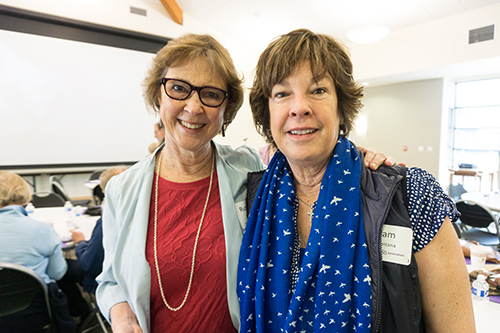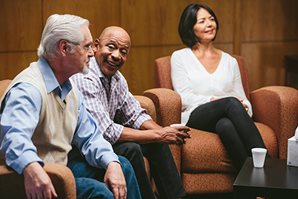The Northern California and Northern Nevada Chapter offers programs and resources to support people living with mild cognitive impairment (MCI), Alzheimer's or other dementias.
Most early stage support groups and most social engagement programs are hosted via phone or video conference instead of in-person.

Early Stage Support Groups
Our early stage support groups are for the person with a physician’s diagnosis of Alzheimer’s disease or a related disorder who has mild symptoms/is mostly independent, who is comfortable discussing their diagnosis as well as their symptoms, and who wants the opportunity to talk with others in a group setting.

Most groups include a separate care partner group. Pre-screening is required prior to enrollment.
Please contact our 24/7 Helpline (800.272.3900) if interested.
Living With Alzheimer's
The diagnosis of Alzheimer’s disease is life-changing and leads to many questions. What will this mean for me and my family? How do I plan for the future? Where can I get the help I need? In this three-part education program, you will hear from others who have been where you are. You’ll learn what you need to know, what you need to plan, and what you can do as you navigate this chapter of your life. The Living with Alzheimer’s series can be found at our online Education Center at training.alz.org.
Social Engagement
Socialization is an important part of life, and we offer opportunities for people affected by Alzheimer’s disease or a related dementia to come together. Social Engagement opportunities include museum tours, park tours, brain games, and casual video meetups. Get to know other people living with dementia in a supportive environment, while learning something new. Space and screening requirements vary, and some are open to people currently living with memory loss, regardless of whether they have a diagnosis. Please contact our 24/7 Helpline (800.272.3900) if interested.
ALZConnected Online Community
ALZConnected is a free online community for everyone affected by Alzheimer’s or another dementia. This includes people with a diagnosis of Alzheimer’s or another dementia, as well as their care partners.